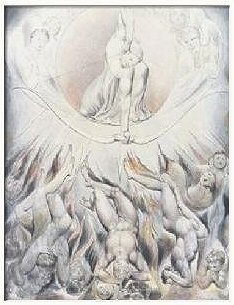The Jailhouse-Snitch Sweepstakes
 You probably thought (foolish child) that government's fascination and affiliation with gambling went no further than state-sponsored lotteries, or that the nadir of this affiliation had been reached with the current misAdministration's "Most-wanted Iraqis playing cards" of 2003.
You probably thought (foolish child) that government's fascination and affiliation with gambling went no further than state-sponsored lotteries, or that the nadir of this affiliation had been reached with the current misAdministration's "Most-wanted Iraqis playing cards" of 2003.Not so.
Prosecuting attorneys consider one of their best resources in investigating major crimes to be the use of so-called "jailhouse snitches." The idea behind this resource is that prisoners go to jail and, eager to establish a respectable place in the prison pecking order, boast among themselves about their exploits. When a particularly thorny major crime comes up for which the evidence is insufficiently convincing, a prosecutor can turn to the prison population for help, then. Help us convict this guy, goes the argument, and we'll see if we can get your sentence reduced (or conjugal visits arranged, or whatever the inducement might be).
You can probably see the potential for abuse here. If you reward people for telling tales on one another, people will tell those tales whether they're true or not -- particularly if the institution from which you've recruited is housed in penitentiaries (not exactly the most trustworthy bunch to begin with). Indeed, defense attorneys often will attack the prosecution's case if it relies overmuch on such "and then he whispered to me" sources. Which doesn't count for a whole heck of a lot, of course, if the jury believes the prosecutor's version of events.
Anyway, we here in Florida are nothing if not blessed with ingenious solutions to the complicated problems attendant on criminal investigations. Thus, some wizard in the Florida Department of Law Engorgement, er, Enforcement has come up with the Florida Cold Case Homicide Card Deck -- an idea long overdue.
The (ha ha) deal is to print up, on playing cards, descriptions of various unsolved cases which have otherwise run into a brick wall of one kind or another. Distribute 100,000 decks of these cards among Florida's currently more than 90,000 state prisoners. For each tip leading to an arrest, the source can receive between $1,000 and $50,000. (The lower end is what the state alone will pay; anything above that is made up for from other sources, like the victims' families. The tips themselves are submitted in a way which keeps the source anonymous, while still enabling them to be identified through a third party in order to receive the reward.)
A column (fee may be required in order to view the whole thing) in today's Tallahassee Democrat says:
Since the first decks of cards were distributed to inmates three months ago, 72 tips have already come in to the tip line from correctional institutions statewide , but quite a few more clues have come in... bypassing the reward and going directly to law-enforcement officials, including state attorney's offices.Aside from my trouble with the word "might" in that last sentence, I also have difficulty with the idea -- as presented in the column, anyhow -- that rewards are available not just for convictions (problematic enough), but for simple arrests.
“It has surprised us how many tips have come in from inmates who just want to do the right thing,” said [Wayne] Cross [director of the Florida Attorney General's Heartland Crime Stoppers program].
I'm surprised, too, and skeptical that the sole reason inmates would tip off authorities and bypass a reward would be for altruistic purposes. Maybe they don't trust the system to keep them anonymous when they collect their reward (though it's actually a pretty good system involving a secret code and a trusted friend), or maybe being in the good graces of a state attorney's office is worth more than the reward -- but I've probably been watching too many reruns of “The Wire.”
The bottom line is any tips gleaned from the prison population, or the general public, might help take a murderer off the streets and help a victim's family find some peace of mind.
The FDLE page about the cards includes a quote from Voltaire: "To the living we owe respect; to the dead we owe the truth." It's a good quote, but we'd do well to remember to respect the living -- including those arrested on the basis of this program -- as well as to offer true, honest-to-God truth (and not some hired weasel's version of it) to the ghosts and survivors of the dead.
Interested in owning your own set of the cold-case cards? Purchase here. Two different decks available!
Update, 2:45pm: More information about the program is available at -- where else? -- the Poker Pro Magazine site.
Labels: corrections, crime, law, politics


0 Comments:
Post a Comment
Subscribe to Post Comments [Atom]
<< Home